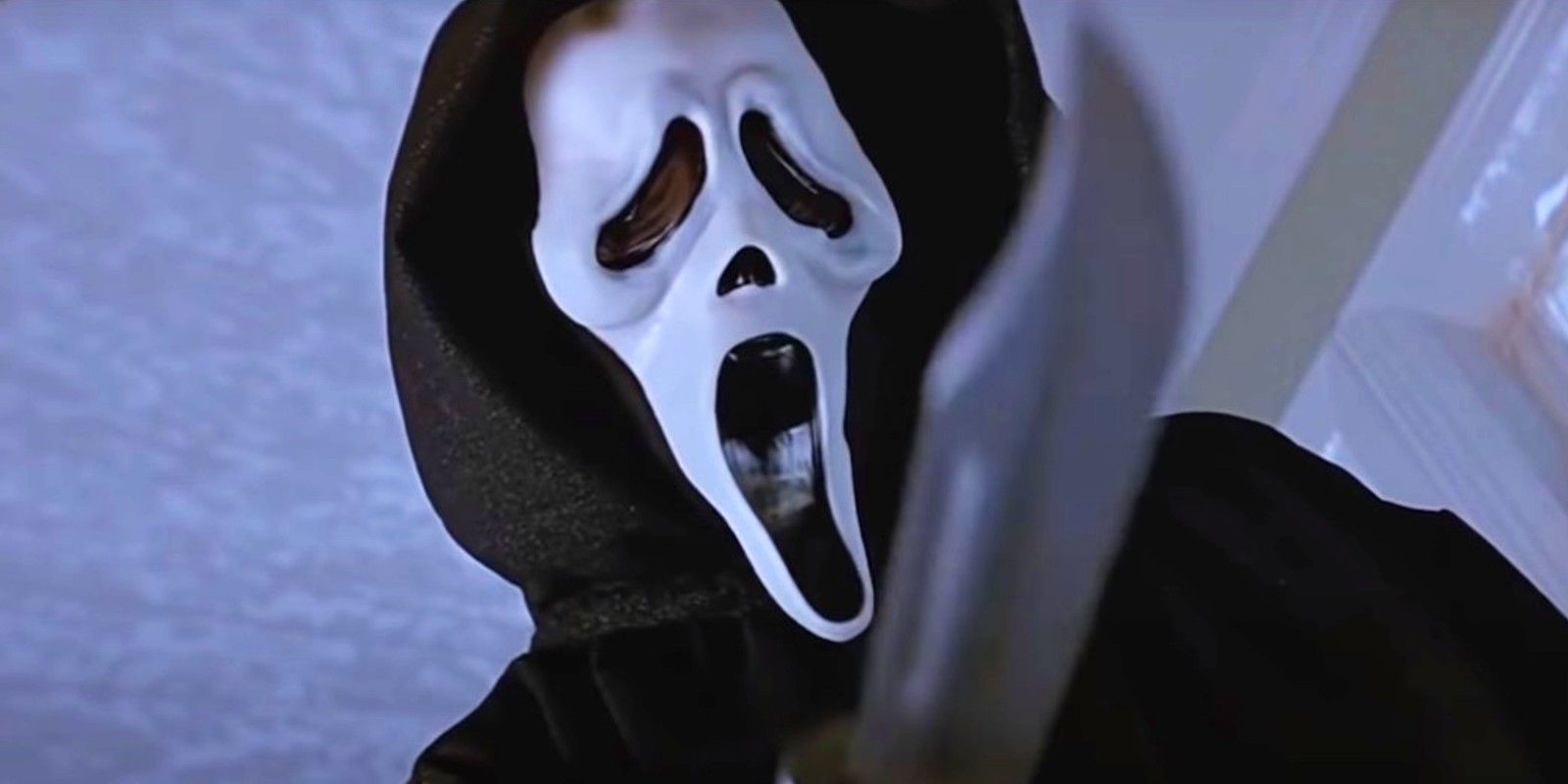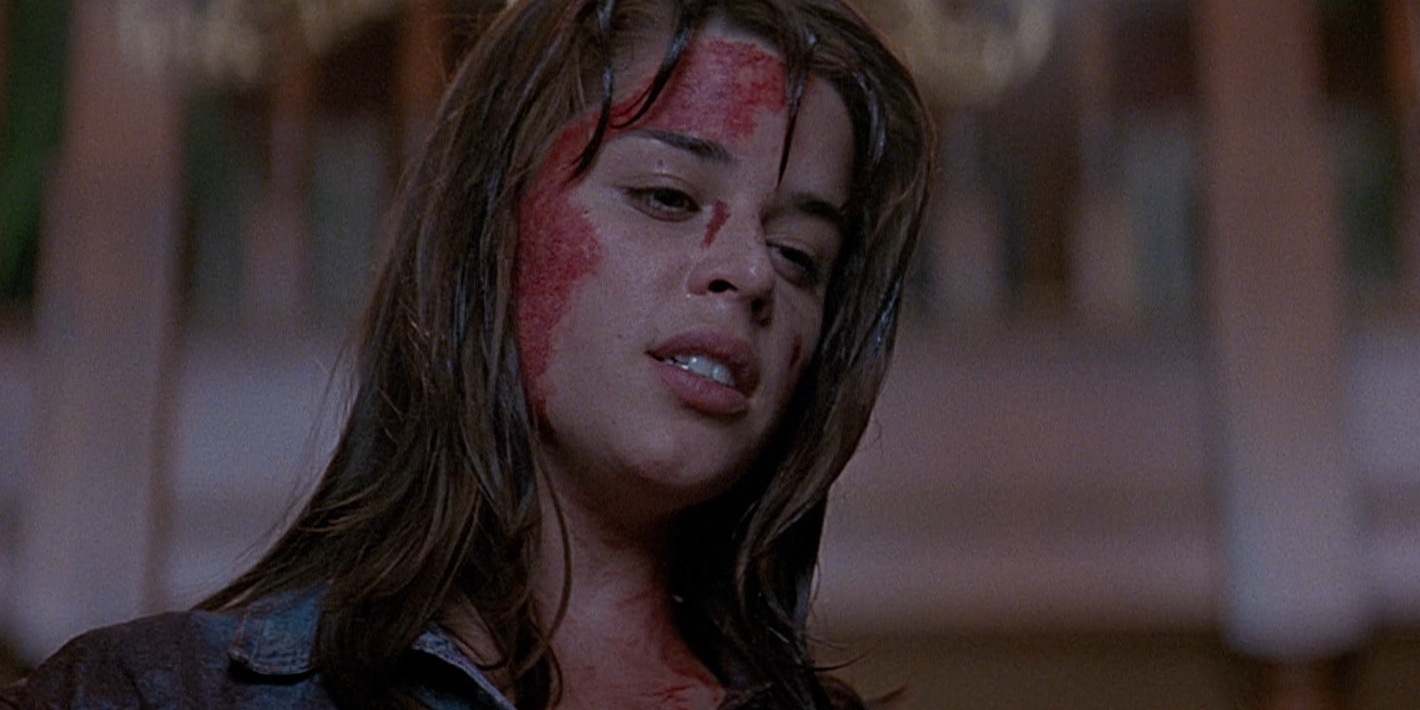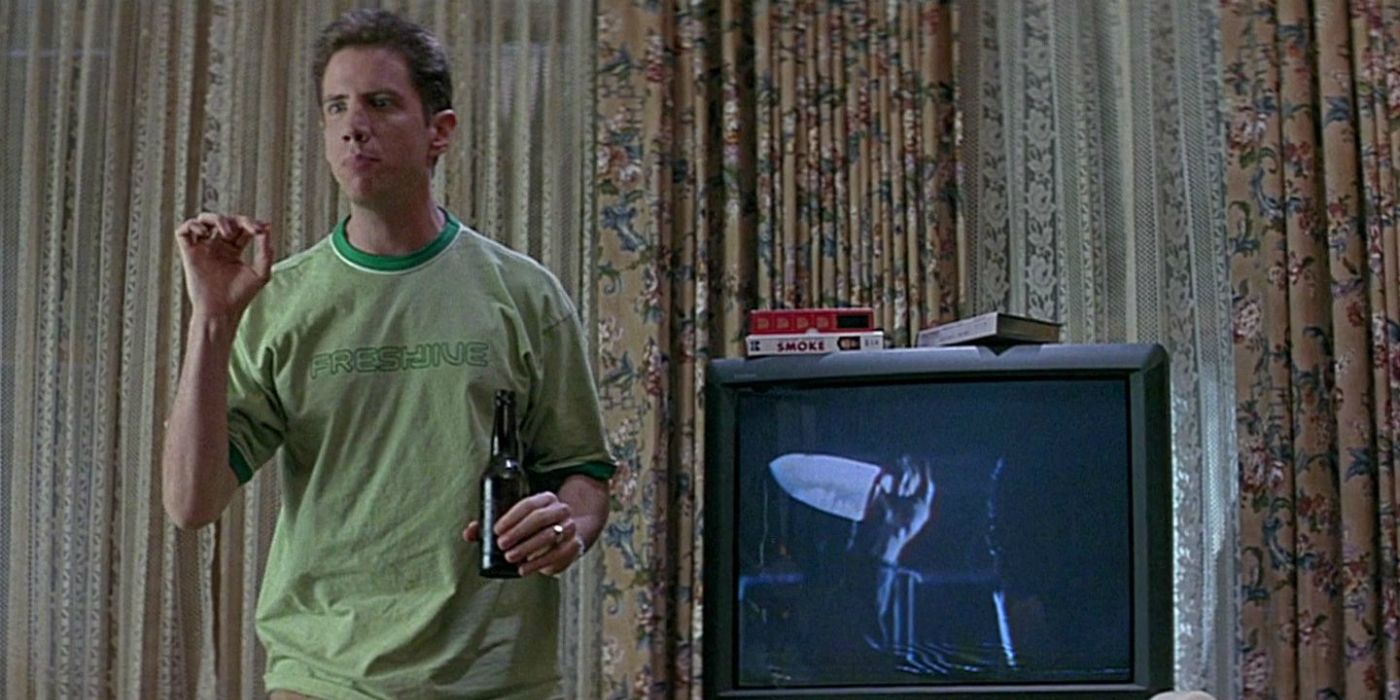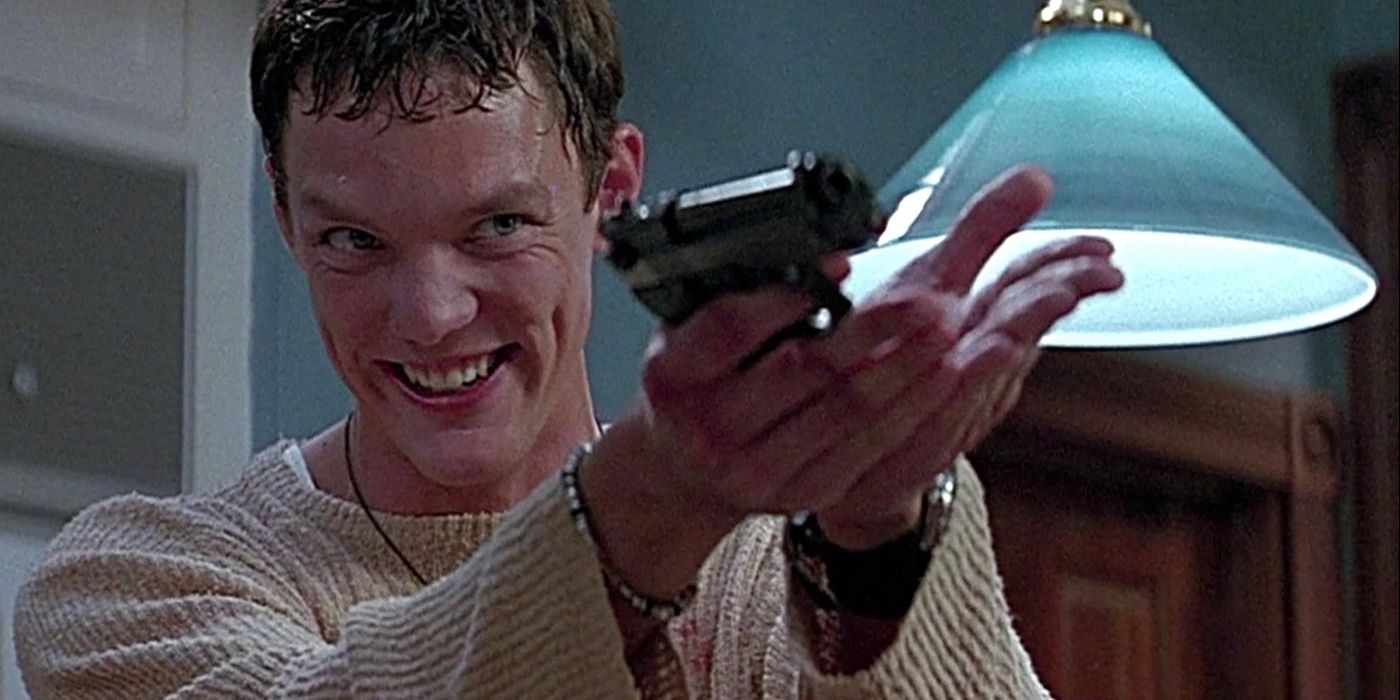Wes Craven's Scream is such a horror classic at this point that it's easy to forget just how much of the film self-knowingly criticizes the trappings of the genre. Ironically, it took a slasher movie pointing out tired cliches and acknowledging formula in order to resurrect all the thrills of a scary movie. Scream didn't just liven up the slasher for a new audience, it changed and defined the face of horror for the nineties and beyond.
Although director Wes Craven is rightfully adored for his contributions to the landmark horror film, it was screenwriter Kevin Williamson who was the creative brain to germinate the idea of a self-aware slasher flick. Inspired by a string of home invasions followed by gruesome murders in Gainesville, Florida, Williamson channeled his paranoia into an eighteen-page script treatment about a woman taunted by a killer on the phone. The real kicker, though, was the writer's unabashed passion for -- and explicit acknowledgment of -- slasher movies from the seventies and eighties. For one of the first times in cinema history, a horror movie knew its own rules.
It turns out that Williamson's energetic, yet focused and mindful story was the exact sort of fresh voice that the rotting slasher genre so desperately needed. Originally called Scary Movie, the film was picked up for distribution by Dimension Films—part of Miramax at the time—in the hopes that it would become a hit for the burgeoning studio. All the project needed was a director's vision to bring the script to life. Wes Craven, whose diminishing taste for horror's cheap tropes reflected the general sentiment towards the genre in the middle of the decade, turned out to be the perfect choice to combine suspenseful violence with winking meta-humor.
How Scream Became A Cultural Phenomenon
Arriving at the tail end of the seemingly never-ending wave of slasher movies, Scream effectively escaped what was considered a trite niche and rose to pop culture prominence. Critics were ready to herald the death of the horror genre in the nineties as once profitable franchises were met with diminishing returns. Along came a wonderful paradox to prove them wrong, a thrilling and frightening murder mystery that packed a sharp wit. Somehow, Williamson and Craven pulled off the miracle of creating a horror-comedy in which neither tonal side undermined the other. For all of its biting satire, the picture's unflinching violence was always viscerally scary, while its characters were squarely grounded in reality.
Because Scream was both a love letter to and a sardonic criticism of the slasher genre, audiences were free to both laugh and cower in their seats. Those who stuck with slashers long enough to become intimately familiar with their predictable tropes were treated to shocking subversions, while those who had given up on masked killers found renewed interest. The refreshing change of pace wasn't just about the villain, either. In fact, for the first time in years, the success of a slasher movie was attributed to its colorful characters arguably more than the monster hunting them down.
Victims within slasher movies were notoriously devoid of personalities as they became fresh meat for their murderers, their deaths predicated on how unrealistically inane their decision-making skills were. In blatant contrast, Scream presented an intelligent, sympathetic cast of players taking part in a murder mystery that was more complex than the average slice-and-dice massacre. Survival meant fighting back instead of running away, endearing audience members to those who were both smart and tough enough to navigate the maze of bodies. Sidney Prescott, in particular, was a strong, fully developed protagonist whose charm and resourcefulness rivaled legendary final girls like Laurie Strode and Nancy Thompson, while the dynamic supporting cast had distinct traits that highlighted their roles and motivations.
Why Scream Was So Important To Horror In The '90s
Scream completely reignited the general audience's interest in slashers by reinterpreting an old formula. John Carpenter's slasher masterpiece Halloween plays on a television in the background as characters creep down hallways, a constant acknowledgment that the film was borrowing from the greats at the same time that it was tearing down formulas. This sort of meta approach to storytelling turned out to become such a hot trend in screenwriting that, by today's standards, the style may come across as overused and cliche to some. At the time, though, this was exciting stuff, even if Scream wasn't the first horror film to exist in a universe where horror films were widely discussed.
Friday the 13th Part VI: Jason Lives joked about how dumb the characters in horror movies were, while Wes Craven made himself the victim of Freddy Krueger in New Nightmare, a job that primed him for his next slasher gig. The uniqueness of Scream, however, was the way it mythologized the idea of the slasher. By clearly pointing out the rules of the genre, Williamson's script firmly established an identity for a distinctly modern type of movie monster. Like the vampire geek Frog brothers in The Lost Boys or Shaun and Ed discussing how to kill zombies in Shaun of the Dead, the characters within Scream knew the nature of what was stalking them. They just had to figure out who it was.
Suddenly, "meta-horror" became an oft-used and abused term to describe new cinematic frights that were snarky, sleek, and self-aware. Even if not all of the incoming wave of horror movies fit neatly into this mold, Craven's slick visual style and Williamson's blend of teen drama and whodunnit certainly inspired imitators in the late nineties and early aughts. Films like Urban Legend, Cherry Falls, and, most notably, Williamson's own Scream-inspired I Know What You Did Last Summer featured teens navigating plot twists as much as they were dodging knives.
Older slashers got in on the action, too, with Halloween H2o and Bride of Chucky playing with audiences' preconceived notions and incorporating self-referential humor. The impact wasn't just limited to slashers, either. The Faculty presented a group of eclectic high schoolers with a parasitic alien invasion, while Final Destination had a group of young, spry friends literally getting picked off by Death itself.
The Legacy of Scream In The Horror Genre
Scream has become so iconic and popular that it can be easily interpreted as just as schlocky and hackneyed as the movies it's parodying. As an example of this sort of self-defeating impact, the first Scary Movie chose to make the film one of its main spoof targets, as if Williamson and Craven weren't already poking fun at the horror genre. In a brutal bit of irony, producer Bob Weinstein changed Scream's original title from Scary Movie because he wanted to emphasize the non-scary parts of the story. Scream may have been trying to break down and reconstruct the slasher movie plot skeleton, but other filmmakers ended up using its blueprint.
Since the turn of the millennium, metafiction and self-aware commentary have become more widely prevalent in cinema as a whole. In the current Internet-dominated age of ultra ironic cultural references, the way Scream explains and lists horror movie rules in the presence of an actual killer may appear a bit cheesy. There's a certain earnestness to all of that mockery, though, that makes the film stand out and hold up to this day. Williamson stops short of turning his story into a farce, while Craven never shies away from the disturbing real-world impact of the grisly violence.
Scream's jabs at horror cinema and those who consume it are amusing, but the movie's conflict is genuinely suspenseful, while its stalker-ish set pieces are legitimately terrifying. It's this strangely palatable blend of emotions that makes viewing Scream such a wildly cathartic experience, and how the highly anticipated Scream 5 can possibly reinvent the wheel, again.




